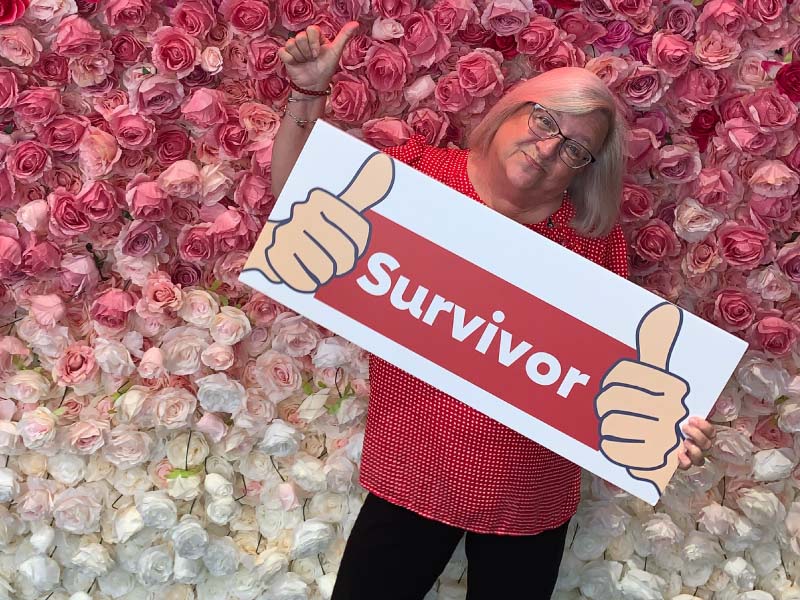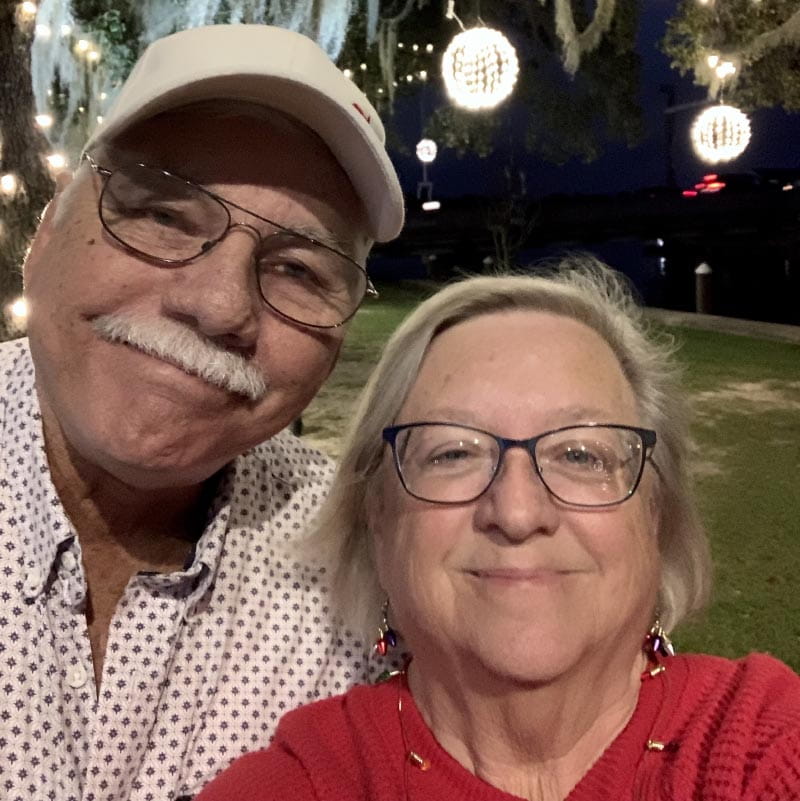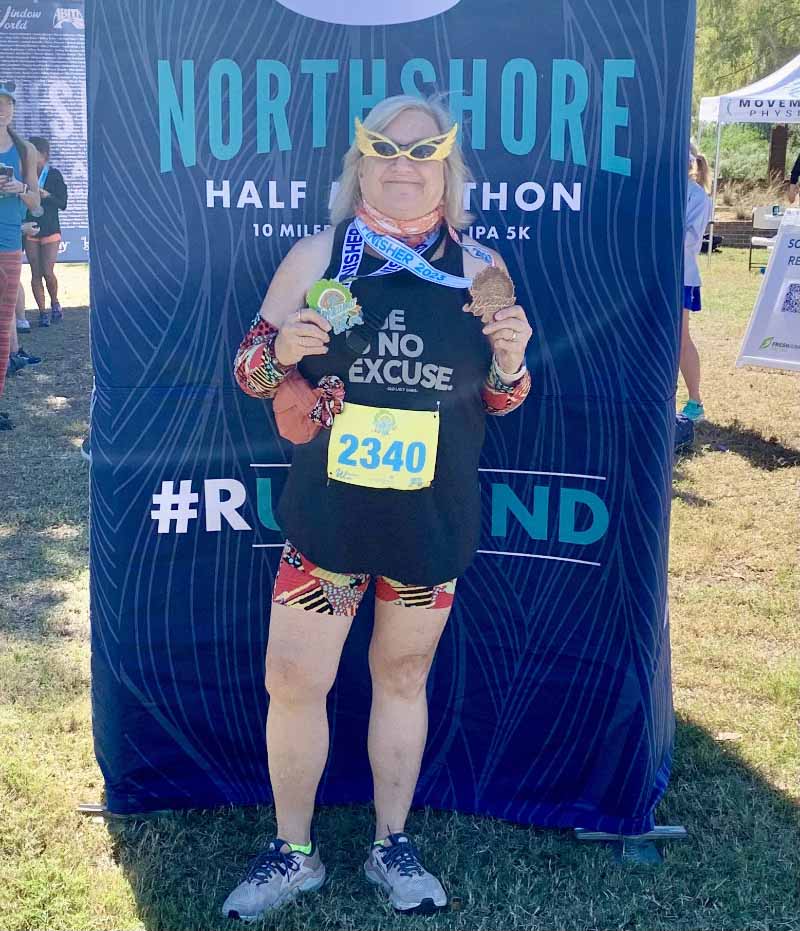An 8-minute limit at cardiac rehab propelled heart attack survivor to push for more
By Diane Daniel, American Heart Association News

Sheron Lee insisted she couldn't fit any sort of exercise into her busy day.
A systems accountant for the federal government, she often put work above everything, sometimes even skipping family vacations. Even getting to work took commitment; she commuted an hour each way between her home in Hammond, Louisiana, and her office in New Orleans.
Weekends were out, too. Her ailing mother lived three hours away, and she spent Fridays, Saturdays and Sundays caring for her, providing time off for her sisters who looked after their mom during the week.
At age 50 and 5 feet, 2 inches tall, her weight was approaching 200 pounds. She knew this wasn't healthy, and she knew she had a family history of heart disease; her father had a triple bypass at 53.
Still, she told herself, "I'm invincible. Nothing's going to happen to me."
Then something happened.
At her annual physical, her blood pressure and electrocardiogram readings were so high the nurse wouldn't let her take a stress test.
They sent Lee to the hospital, where she had an angiogram to check the health of her blood vessels. Doctors found two major blockages. One was in her left anterior descending artery, the largest coronary artery, which carries oxygenated blood to the left side of the heart.
She needed stents inserted to open those two blockages. While waiting for that procedure, Lee had a heart attack.
Doctors were able to unclog her arteries using a stent and balloon angioplasty. In that method, inflating a balloon at the point of blockage widens the artery opening to increase blood flow.
She went back to work as soon as possible. Grudgingly, she decided to follow her doctor's advice and try cardiac rehabilitation.
Before the first workout, she watched a video featuring a busy woman focused on her work and neglecting her health.
"If you don't turn things around, your chances of survival are slim," the narrator said.
That felt personal.
Then a technician put her on a stationary bicycle for a few minutes. From there, she was moved to an arm machine.
"Stop!" the tech said. "You need to lie down."
She wasn't allowed to continue beyond the eight-minute mark because her heart rate spiked.
"Eight minutes?" Lee said. "It took me 30 minutes to get to rehab, 20 minutes to hook me up, and 30 minutes to get home, and you're telling me I can exercise for only eight minutes?"
She cried all the way home.
"When she came in crying, I knew something was fixing to change," said her husband, Freddy Lee. "Because if Sheron hears she's doing something wrong, she's going to change it."

After two weeks of going to cardiac rehab two times a week, Sheron's heart became stronger and she moved the needle beyond eight minutes. And kept at it. She started to enjoy exercising so much that when the prescribed six weeks of cardiac rehab ended, she paid for a gym membership. She'd made it up to 20 minutes by then.
That was in 2008. Her mother died the following year, and she had more time to devote to exercise. Two years later, still going to the gym, she started a walking routine. She decided to walk a half-marathon. That would be the first of many 13.1-mile outings.
Also in 2010, Sheron encountered two more life-changers.
One was discovering Go Red for Women, the American Heart Association's national movement to end heart disease and stroke in women. She started attending its events and volunteering.
The other was Zumba, the dance fitness program that she first tried out during a New Orleans Pelicans halftime event. She started attending classes regularly, then went on to become an instructor in 2014.
"The music makes you feel alive, and the community that comes with it is amazing," she said.
Along the way, both she and Freddy, a disabled veteran who also has heart disease, improved their diets and lost weight.
"The main thing we try to watch is fatty foods," Sheron said. "We work on moderation and portion control. You can't say you just can't have cornbread ever again in your life."
She continues to walk, logging at least 10,000 steps a day. Her children call her an "adult-onset athlete." They marvel at how she's gone from avoiding exercise to becoming a Zumba instructor with a collection of half-marathon medals.

Despite becoming fitter and healthier, Sheron couldn't escape her inherited risk of heart disease. In 2015 and again in 2023, doctors found blockages, leading to her receiving a total of three more stents.
Both times, she said, she had to push to be admitted to the hospital because her heart symptoms weren't obvious.
"I've become very observant of my body," she said.
Sheron, who is now 67 and retired, continues to do volunteer work, walk and teach Zumba.
Freddy said she's as busy as ever, but with activities that contribute to her health instead of depleting it.
"It's like she has a second chance with herself," he said.
Sheron credits her time in cardiac rehab with turning things around.
"I say that cardiac rehab saved my life because they teach you how to be confident and how to not be scared for the rest of your life," she said.
She'll never forget the eight minutes that propelled her forward 17 years ago.
"I'll do a Zumba event for three hours, and on the way home, I'll think about how I couldn't get past eight minutes," Sheron said. "It's hard to believe."
Stories From the Heart chronicles the inspiring journeys of heart disease and stroke survivors, caregivers and advocates.





